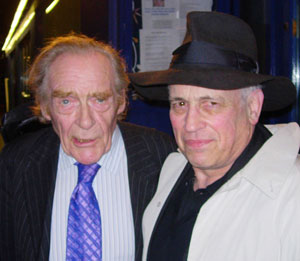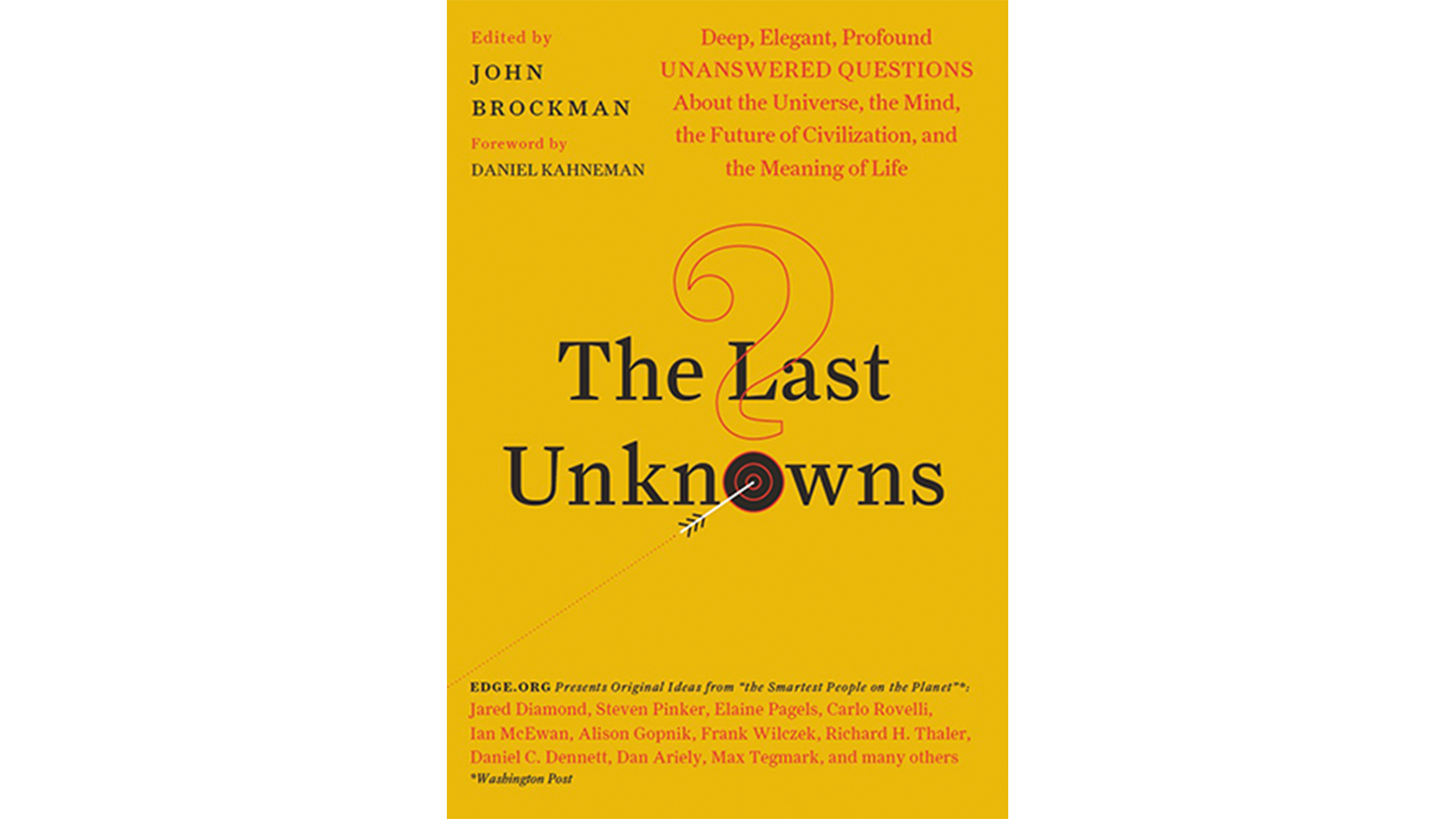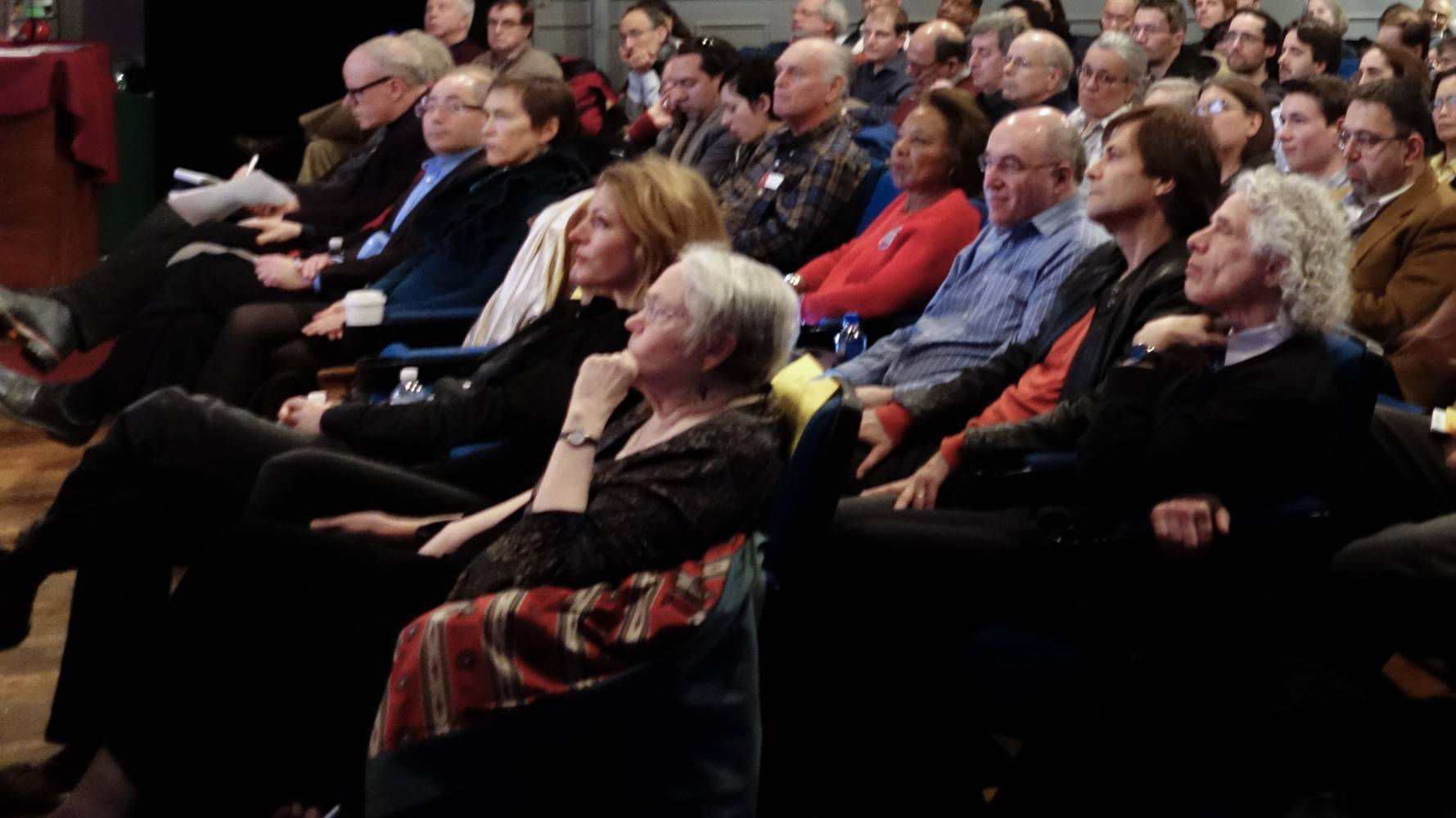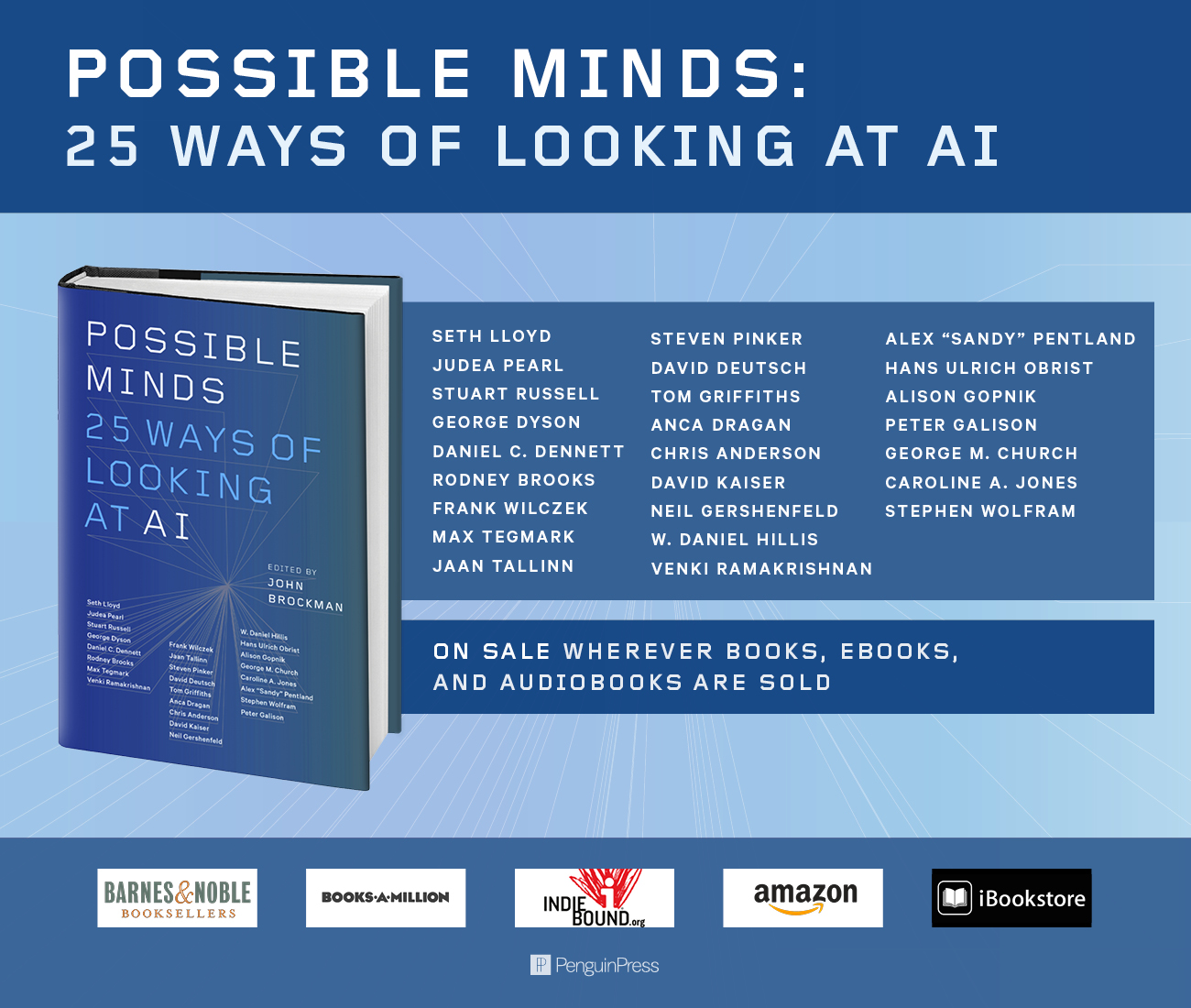MURRAY GELL-MANN
September 15, 1929 – May 24, 2019
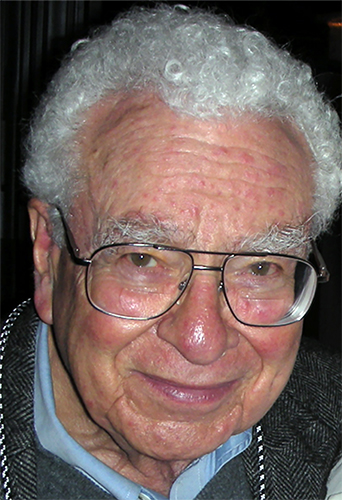
[ED. NOTE: Upon learning of the death of long-time friend, and colleague Murray Gell-Mann, I posed the question below to the Edgies who knew and/or worked with him. —JB]
Can you tell us a personal story about Murray and yourself (about physics, or not)?
THE REALITY CLUB
Leonard Susskind, George Dyson, Stuart Kauffman, John Brockman, Julian Barbour, Freeman Dyson, Neil Gershenfeld, Paul Davies, Virginia Louise Trimble, Alan Guth, Gino Segre, Sara Lippincott, Emanuel Derman, Jeremy Bernstein, George Johnson, Seth Lloyd, W. Brian Arthur, W. Daniel Hillis, Frank Tipler, Karl Sabbagh, Daniel C. Dennett
[ED. NOTE: For starters, here's a story Murray told about himself when I spent time with him in Santa Fe over Christmas vacation in 2003, excerpted from "The Making of a Physicist" Edge, June 3, 2003—JB]
Uncharacteristically, I discussed my application to Yale with my father, who asked, "What were you thinking of putting down?" I said, "Whatever would be appropriate for archaeology or linguistics, or both, because those are the things I'm most enthusiastic about. I'm also interested in natural history and exploration."
He said, "You'll starve!"
After all, this was 1944 and his experiences with the Depression were still quite fresh in his mind; we were still living in genteel poverty. He could have quit his job as the vault custodian in a bank and taken a position during the war that would have utilized his talents — his skill in mathematics, for example — but he didn't want to take the risk of changing jobs. He felt that after the war he would regret it, so he stayed where he was. This meant that we really didn't have any spare money at all.
I asked him, "What would you suggest?"
He mentioned engineering, to which I replied, "I'd rather starve. If I designed anything it would fall apart." And sure enough when I took an aptitude test a year later I was advised to take up nearly anything but engineering."
Then my father suggested, "Why don't we compromise — on physics?"
Introduction
By Geoffrey West
Murray Gell-Mann was one of the great scientists of the 20th century, one of its few renaissance people and a true polymath. He is best known for his seminal contributions to fundamental physics, for helping to bring order and symmetry to the apparently chaotic world of the elementary particles and the fundamental forces of nature. He dominated the field from the early ‘50s, when he was still in his twenties, up through the late ‘70s. Basically, he ran the show. By modern standards he didn’t publish a lot, but when he did we all hung on every word. It is an amazing litany of accomplishments: strangeness, the renormalization group, color and quantum chromodynamics, and of course, quarks and SU(3), for which he won the Nobel prize in 1969.
He was the Robert Andrews Millikan Professor Emeritus of Theoretical Physics at the California Institute of Technology, a cofounder of the Santa Fe Institute, where he was a Distinguished Fellow; a former director of the J.D. and C.T. MacArthur Foundation; one of the Global Five Hundred honored by the U.N. Environment Program; a former Citizen Regent of the Smithsonian Institution; a former member of the President's Committee of Advisors on Science and Technology; and the author of The Quark and the Jaguar: Adventures in the Simple and the Complex.
Despite his extraordinary contributions to high-energy physics, Murray maintained throughout his life an enduring passion for understanding how the messy world of culture, economies, ecologies and human interaction, and especially language, evolved from the beautifully ordered world of the fundamental laws of nature. How did complexity evolve from simplicity? Can we develop a generic science of complex adaptive systems? In the ‘80s he helped found the Santa Fe Institute as a hub on the academic landscape for addressing such vexing questions in a radically transdisciplinary environment.
Murray Gell-Mann knew, understood and was interested in everything, spoke every language on the planet, and probably those on other planets too, and was not shy in letting you know that he did. He was infamous not just for correcting your facts or your logic, but most annoyingly to some, for correcting how you should pronounce your name, your place of birth, or whatever. Luckily my name is West but that never stopped him from lecturing me many times on the Somerset dialect that I spoke as a young child.
Although he decidedly did not suffer fools and would harshly, sometimes almost cruelly, criticize sloppy thinking or incorrect factual statements, he would intensely engage with anyone regardless of their status or standing if he felt they had something to contribute. I rarely felt comfortable when discussing anything with him, whether a question of physics or lending him money, expecting to be clobbered at any moment because I had made some stupid comment or pronounced something wrong.
Murray could be a very difficult man…but what a mind! However, he loved to collaborate, to discuss ideas, and was amazingly open and inclusive even if he did dominate the proceedings. By the time we had become colleagues at SFI, I had become less and less sensitive to the master’s anticipated criticism or even to his occasional praise; the potential trepidation had pretty much disappeared and our relationship had evolved into friendship and collegiality, just in time for me to become his boss. Negotiating with Murray over a perplexing physics question is one thing, but try negotiating with him over salary and secretarial support, then you’ll really see him in action. To quote Hamlet: "He was a man. Take him for all in all. I shall not look upon his like again."
GEOFFREY WEST is a theoretical physcicist; Shannan Distinguished Professor and Past President, Santa Fe Institute; Author, Scale. Geoffrey West's Edge Bio page.


